Setting out to build the "ultimate ultralight" 4x4 camper for all seasons and all terrains, Canada's Tufport has outdone itself with a sleek, wood-free composite camper that ranks among the lightest available. The rugged new Overlander fits the full spectrum of American market-dominating pickup trucks, from the midsize Toyota Tacoma that makes overlanders swoon to the full-size Fords, Rams and Chevys that top overall vehicle sales every year. The camper weighs well under 1,000 pounds (454 kg), whether you choose to go with the simplest overnight sleeper shell or opt for a fully kitted model with kitchen, dinette and toilet.
It seems like Tufport has been closely watching the sleek, lightweight composite campers rolling out from the likes of Scout and Loki thinking, We can do that. The fact it was simultaneously inundated with customer requests for a dedicated camper made the green-light that much easier to flick.
Tufport first chilled its toes in the experimental waters by partnering up with Utah's Wasatch Overland to make its existing Adventure fiberglass service bodies into simple-but-functional campers. It extended that partnership by developing a dedicated off-road pickup camper in the brand-new Overlander. Tufport builds the single-piece fiberglass composite body, and Wasatch Overland fills it out with a cozy camper interior.
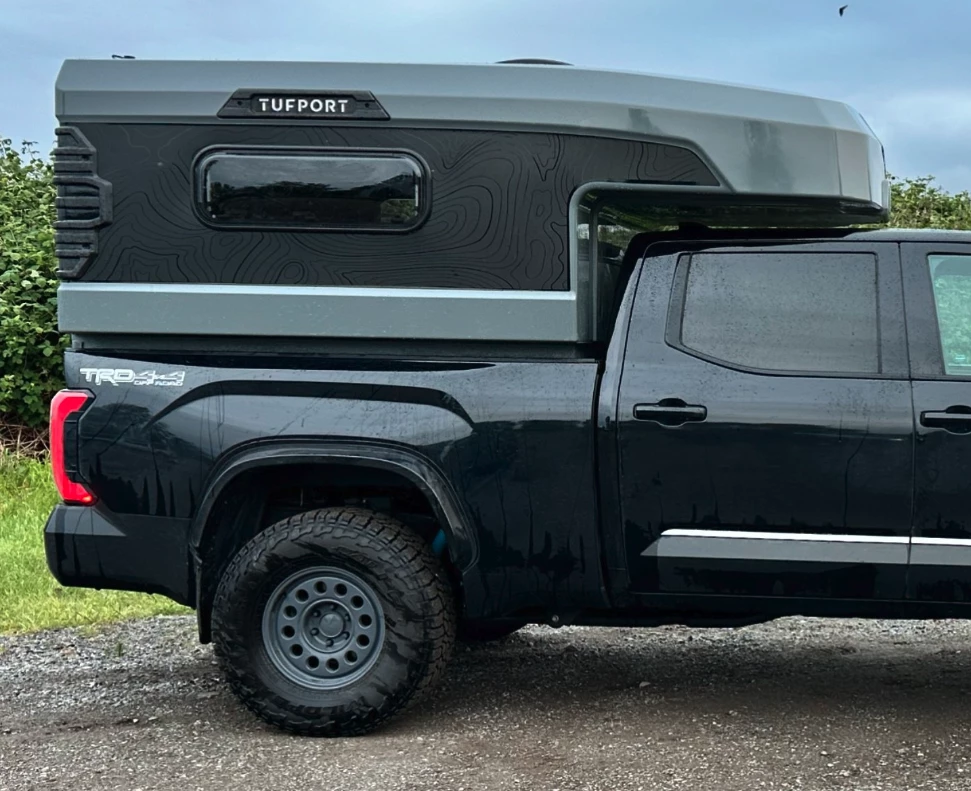
Tufport has long prided itself on building lightweight, industrial-strength commercial service bodies built to join their equally rugged base trucks out into all kinds of harsh working conditions, and it promises even more strength-to-weight for the Overlander.
The ruggedized corners look like they might be part of that beefed-up construction, the type of integrity-boosting reinforcement you see in something like a Eurobox cargo crate, but they're actually there to help smooth out airflow and make the Overlander less of an mpg-killer. The Overlander won't slip through the air like a Lightyear solar car, mind you, but with the massaged aerodynamics and a base weight starting at just 750 lb (340 kg), the fuel stops should seem infrequent compared to those taken when muling around heavier, larger one-ton pickup campers.
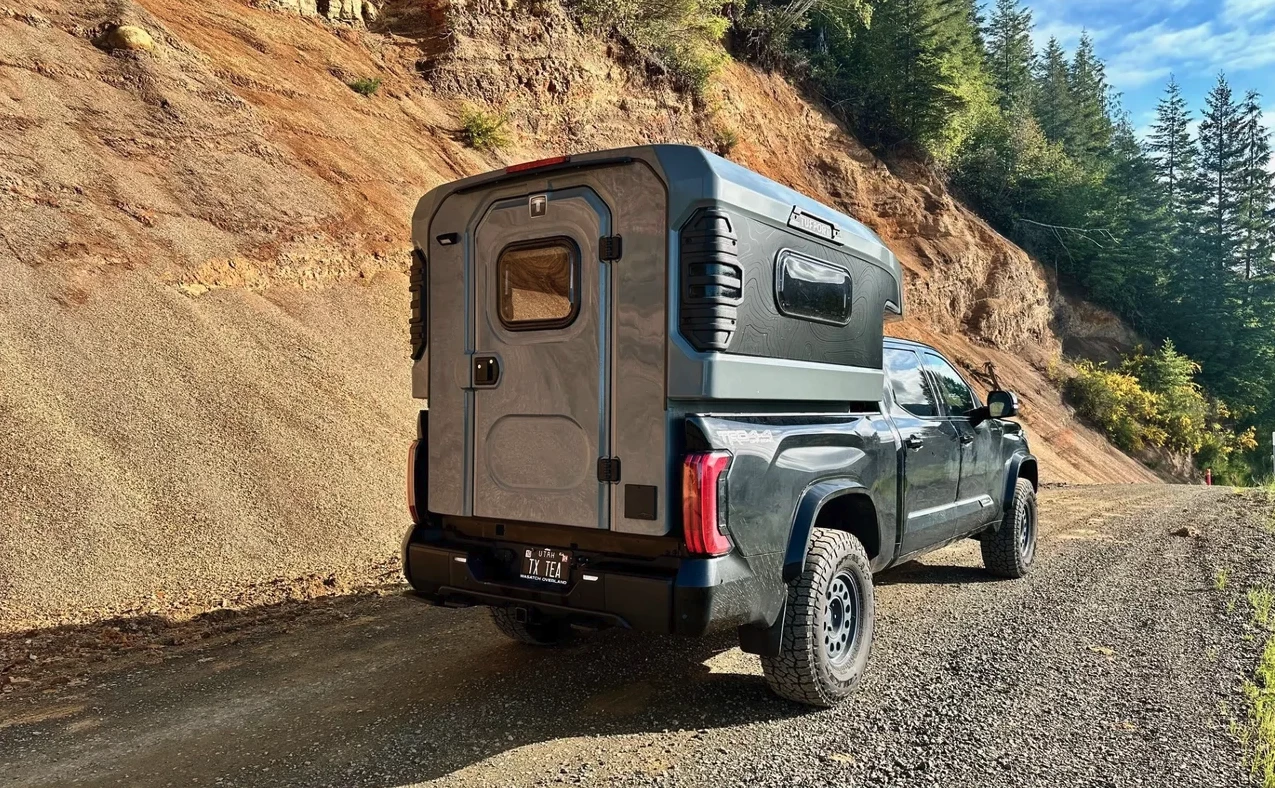
One downside to all that weight- and drag-shaving: The Overlander stands just under 5 feet 5 inches (1.7 m) tall inside, making it too short for much of the population to stand upright. So campers will need to get used to sitting and crouching. But the goal was to strike a balance between livable interior and light, low-sitting drivability. Toward that end, its 67-in (170-cm) total exterior height is nearly 8 inches (20 cm) shorter than the fixed-roof Scout Yoho midsize truck camper.
The Overlander is also one of the lightest pickup campers available, and given that lighter models like the Scout Tuktut and RoverKing Capra are concentrated around the Ford Maverick or midsize models with 5-foot short beds, the Overlander might just be the market's lightest alcove camper for pickups with 6-foot+ beds. Specifically, it's available at launch for midsize trucks with 6-foot beds and full-size trucks with 6.5-footers.
A 750-lb weight might have you expecting an empty hunk of raw fiberglass inside, but the entry-level Overlander "Ultra-Light" has a nice, round sleeper package that includes screened and tinted windows, an Ecoflow power station with 100-W solar panel, interior dome lights, a sofa bench that transforms into a 40 x 72-in (102 x 183-cm) double bed, a Maxxair fan, and an R22 insulation package developed for year-round camping.
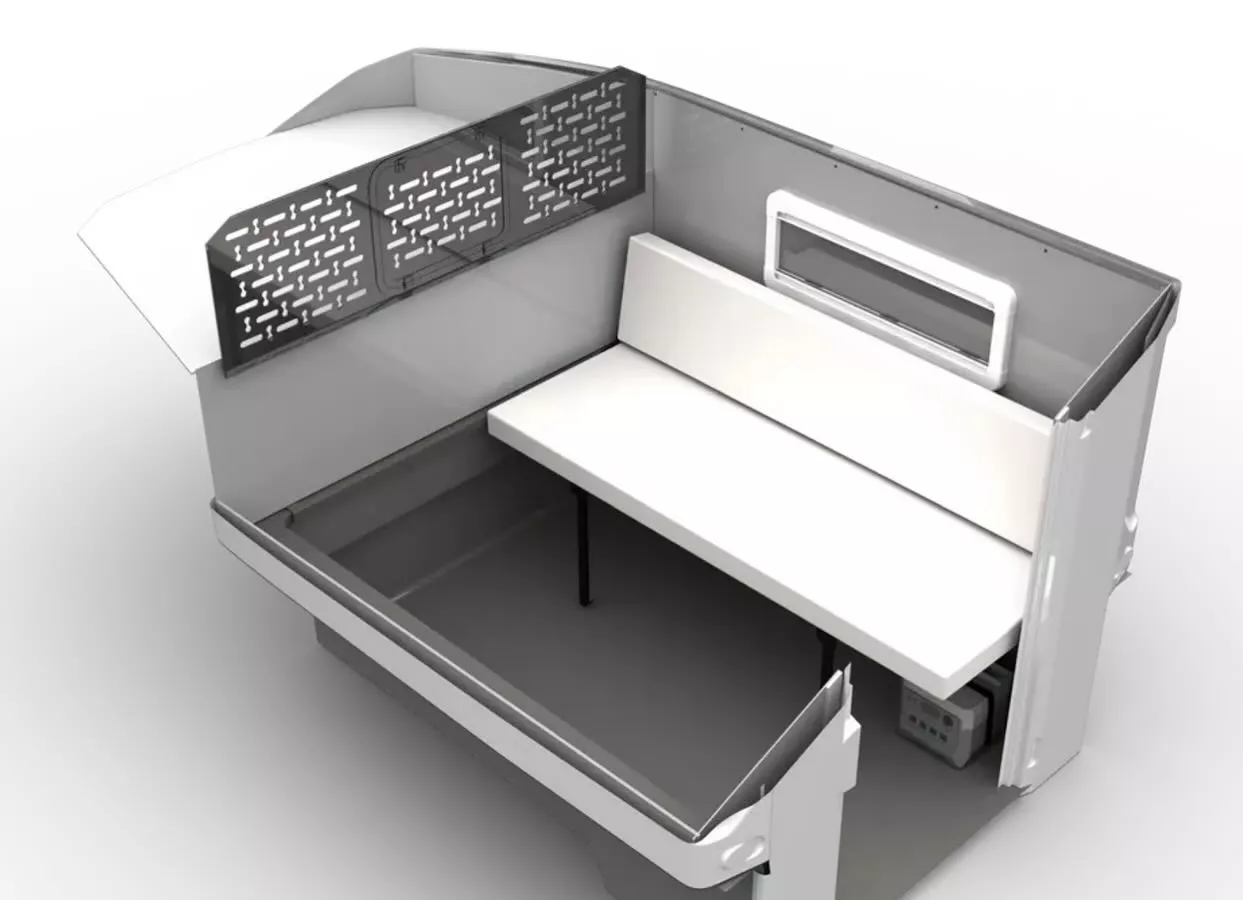
That base package makes the Ultra-Light much more of a proper camper than the basic, empty Adventure canopy that previously served as Tufport's recreational model and required a few options and a little after-sale DIY love to make it work anything like an actual camper.
At the other end of the lineup, the flagship 900-lb (408-kg) Coast-to-Coast model comes with all the features of the Ultra-Light and adds a dual-bench dinette that converts to a larger 55 x 72-in (140 x 183-cm) double bed and a bring-your-own-stove galley with stainless steel sink and 26.5-L water tank. It also includes a standard 86-L Indel B fridge, upgraded Redarc electrical system with 200-Ah battery, and optional Dometic portable toilet.
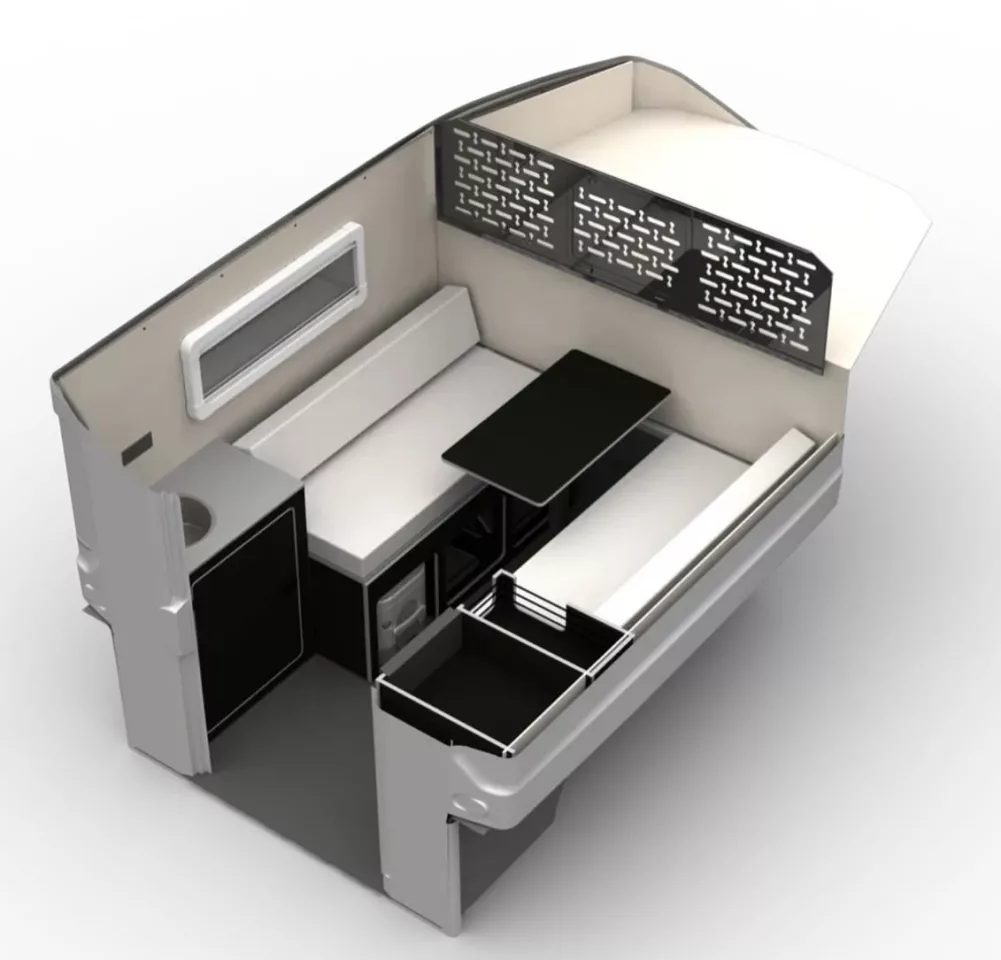
The Overlander Ultra-Light checks in at US$24,500, as listed by Wasatch Overland, with the Coast-to-Coast hiking the base price up to $33,800. Those prices are line with competitors like the Scout Yoho at $23,400 and the Wilderness Vans Range R1 at $39,125.
The mid-tier Sea-to-Sky Overlander floor plan seems a bit of an anomaly. At $33,600, it's only $200 cheaper than the Coast-to-Coast, but it's equipped in middle-of-the-road style, losing the convertible dinette, standard refrigerator and optional toilet. That seems like more than $200 worth of value, though it does have a longer kitchen. It then combines the same 40 x 72-in convertible sofa-bed configuration as the Ultra-Light with the Redarc electrical system of the Coast-to-Coast and an available 45-L Dometic fridge. But for the extra two bills, we'd lean toward the Coast-to-Coast 10 out of 10 times.
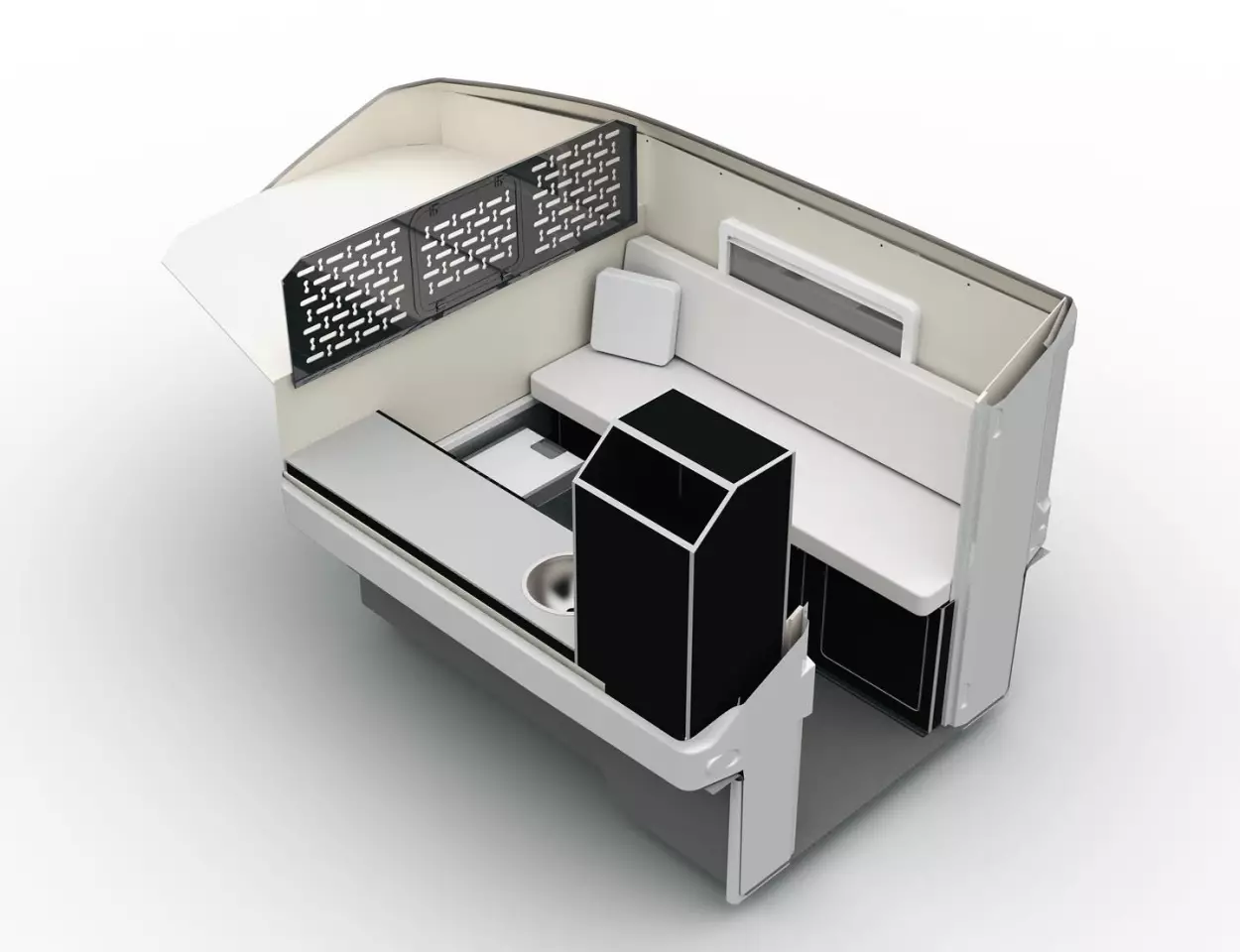
One interesting option available across the lineup, the $1,800 above-cab extension platform works as a cargo retention wall on the ride and drops down to create a properly sized alcove bed. Other options listed by Wasatch Overland include an induction cooktop, a diesel heater and a roof hatch.
Tufport will debut the Overlander at Overland Expo Mountain West in Colorado this August. Hopefully it will have the interior completed and door open by then.
In the meantime, check out the Overlander's first sea-to-sky Tundra-top adventure in the 3.5-min promo below – still no interior footage, though.
Sources: Tufport and Wasatch Overland
















